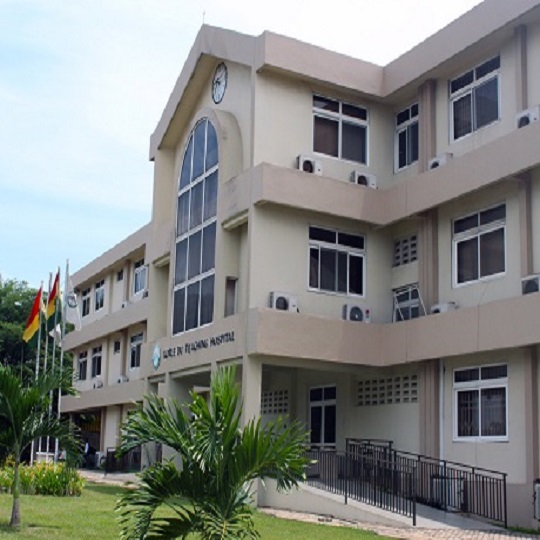
Korle Bu Records 700 Cancer Cases Annually. Korle Bu Teaching Hospital (KBTH), Ghana’s premier tertiary healthcare institution, has been consistently recording approximately 700 new cancer cases each year since 2005. This alarming statistic reflects a broader continental crisis, as Africa continues to face over 24,000 new cancer diagnoses annually.
This information was made public by Dr. Hannah Naa Gogwe Ayettey, a Consultant Oncologist at KBTH, during a recent cancer research symposium. The event, covered by the Ghana News Agency, brought together researchers and healthcare professionals with the objective of understanding the unique biological and societal aspects of cancers in Africa. The overarching goal is to enhance treatment outcomes and reduce the growing cancer burden.
The symposium was held under the auspices of the “Precision Medicine for Aggressive Breast Cancers” (PMABC) initiative. PMABC is a research-driven programme focused on enhancing cancer care across Sub-Saharan Africa through precision medicine—a tailored approach to disease treatment that considers individual variability in genes, environment, and lifestyle.
During her presentation, Dr. Ayettey highlighted the pressing need for increased collaborative research efforts and improved institutional capacity in African countries to better tackle cancer. She pointed out that although the continent is seeing rising numbers of cancer cases, most health systems are under-resourced, and there is an urgent need for long-term investment in infrastructure, training, and diagnostics.
“The mission of PMABC is to strengthen institutions and empower researchers across the African continent in order to reduce the cancer burden through advanced, data-driven research and improved care for our diverse populations,” Dr. Ayettey stated.
Korle Bu Records 700 Cancer Cases Annually
In addition to her role at KBTH, Dr. Ayettey also serves as the General Secretary of the African Organisation for Research and Training in Cancer (AORTIC). She took the opportunity to address the socio-economic barriers that many cancer patients in Africa face, including the prohibitive cost of cancer treatments. These financial challenges often delay the commencement of therapy, reducing patients’ chances of survival and increasing the likelihood of complications.
She passionately appealed to the general public to seek medical attention as soon as symptoms appear and emphasized the critical role of early detection in improving survival rates. Dr. Ayettey also called for robust public education campaigns to promote cancer awareness and community-level interventions to encourage timely screenings.
The theme of the symposium, “Catalysing Basic and Translational Cancer in Africa: Advancing Progress and Capacity Building,” reflects a strategic approach to addressing cancer from multiple fronts—research, diagnostics, education, and clinical care. Organised in collaboration with AORTIC, the event convened leading oncologists, researchers, and public health officials from across the region to deliberate on strategies for tackling high-burden cancers. These include breast, cervical, prostate, colorectal, and oesophageal cancers—diseases that are responsible for thousands of preventable deaths each year in Africa.
Dr. Miriam Mutebe, President of AORTIC, also addressed the gathering and echoed the call for early diagnosis. She stressed that many types of cancer can be effectively treated and even cured if detected at an early stage. She cited breast cancer as an example, noting that while it remains the most common cancer among young women in West Africa, early detection can lead to survival rates as high as 90%.
According to Dr. Mutebe, increasing access to affordable screening and diagnostic services is crucial in improving outcomes. She also emphasized the importance of integrating cancer education into primary healthcare systems and ensuring that health workers are trained to identify warning signs early.
The symposium served as a strong reminder of the urgent need for increased funding, better-equipped laboratories, and patient support systems. Without significant investment in research and infrastructure, the cancer crisis in Africa is likely to worsen. The participants agreed that only through international collaboration, government support, and local community involvement can meaningful progress be achieved in the fight against cancer.
In summary, while Korle Bu Teaching Hospital’s consistent documentation of cancer cases highlights a worrying trend, initiatives like PMABC and organisations such as AORTIC are laying the groundwork for transformative change. The focus remains on early detection, precision medicine, capacity building, and equitable healthcare access—all of which are essential for reducing the continent’s cancer burden.
Souce: gna.org
Ghana Health News


